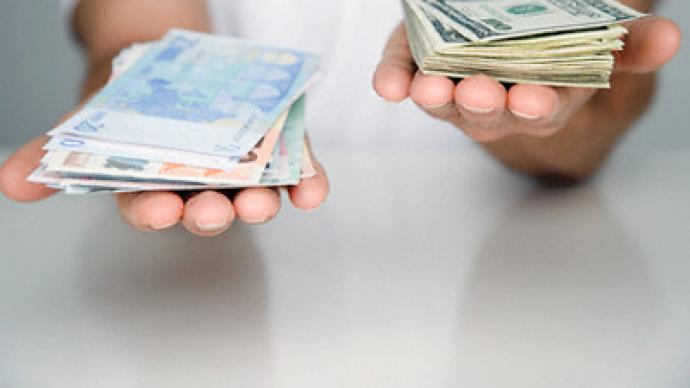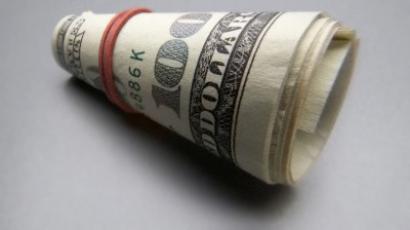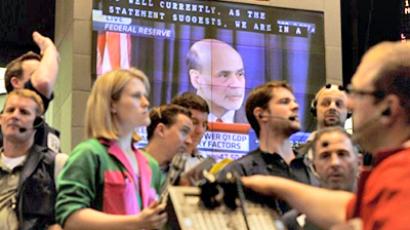The dollar, the euro, and Russia’s double edged sword

With the US Federal reserve lifting the inflation forecast and lowering its growth forecast Business RT spoke with Simon Denham, CEO of London Capital Group about the potential impact on the global economy and Russia.
RT:How are investors taking the Fed’s decision not to tighten monetary policy in the near future? SD:“Of course it is a double edged sword.The investors are reasonably pleased that money is not going to become more expensive, and therefore that gives the attraction of equities a small boost. On the other hand Mr Bernanke did raise problems for the future. As we are all aware growth levels are not as high as the US would wish, and for that reason he is not looking to raise rates, and of course, inflation is something of a problem potentially in the future.They did say that they expect inflation to, inflation pressures, to moderate as commodity prices stabilize at these levels.So at the moment we are probably looking at a quiet period for the Fed, and with their purchases of the bonds would probably look for further weakness of the dollar.”RT:What’s the impact of the Fed’s decisions on emerging economies? SD:“From my point of view it generally should be good.The Feds reasons for not raising rates are to a certain extent because of the strength elsewhere in the world, and the fact that the US needs to be in a situation where they can compete, so it is in indication that the Fed is mindful of the fact that India, China, the BRICS etc are doing very well and the US is not doing very well.At this point in time most of Russia’s exports, or a good percentage of Russia’s exports are in the commodity products and as the dollar falls, commodity prices go up.So to a certain extent Russia should be benefitting from a weak dollar and a weak interest rate in the US.”RT:The Fed’s actions have resulted in the further decline of the dollar and strengthening of the euro. How can this affect the Russian economy?SD:“The price of commodities does have an inverse effect to the price of the dollar, so as the dollar falls commodities naturally rise because many of them are priced in dollars and on a world stage but they must therefore even out against a currency such as the euro, sterling and yen.And so as the dollar falls the commodities do naturally rise.They do seem to have a multiplier effect and a one or two or five percent move in the dollar tends to be equated to a seven to ten percent move in the commodities.So on that basis Russia should be doing significantly better on its exports.Of course, as with all economic data there is the double edged sword that the one currency that really is increasing at the moment is the euro and much of Russia’s imports are priced in the euro.So they lose with one hand and gain with the other. So in the long run Russia should benefit from weakness in the dollar, but there might be some pain in the import prices.”














